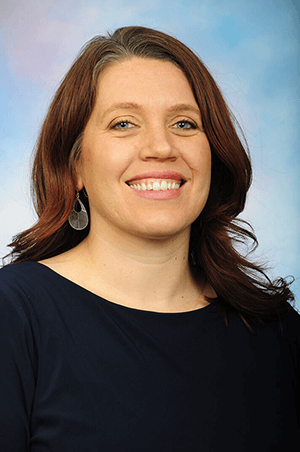
Social needs associated with lower health-related quality of life, such as food and economic insecurity, poor housing and neighborhood conditions and lack of access to transportation, were common in a group of African American cancer survivors in Detroit studied by a team of Wayne State University School of Medicine researchers.
Led by Theresa Hastert, Ph.D., assistant professor of Oncology at the School of Medicine and the Barbara Ann Karmanos Cancer Institute, the research team published “Social needs and health‐related quality of life among African American cancer survivors: Results from the Detroit Research on Cancer Survivors Study” online in CANCER, a peer-reviewed journal of the American Cancer Society.
“My hope is that these findings raise awareness among cancer care providers and cancer researchers by showing that many patients face substantial social and financial difficulties and that these

have real impacts on patients' health-related quality of life on top of cancer and cancer treatment,” Dr. Hastert said. “Cancer care and survivorship settings may represent an opportunity to screen for social needs, to connect patients and survivors with programs and services to address those needs, and to implement innovative interventions to reduce health disparities by addressing social needs among Black cancer survivors. These findings also highlight the need for and importance of having a social safety net in advancing population health and health equity.”
The study’s purpose was to estimate associations between social needs and health-related quality of life in cancer patients. Social needs may affect cancer survivors’ health‐related quality of life above and beyond sociodemographic and cancer‐related factors, the researchers said.
The analysis included 1,754 participants in the Detroit Research on Cancer Survivors cohort, a population-based study of African American survivors of breast, colorectal, lung and prostate cancer. Social needs related to food insecurity, utility shut-offs, housing instability, avoidance of health care due to cost or lack of transportation and negative perceptions of neighborhood safety. The researchers employed a questionnaire called the Functional Assessment of Cancer Therapy–General to measure health-related quality of life issues.
Researchers found that more than one-third (36.3%) of survivors reported social needs, including 17.1% who reported two or more factors. Prevalence of social needs ranged from 8.9% for utility shut-offs to 14.8% for food insecurity.
The analysis included 1,754 participants in the Detroit Research on Cancer Survivors cohort, a population-based study of African American survivors of breast, colorectal, lung and prostate cancer. Social needs related to food insecurity, utility shut-offs, housing instability, avoidance of health care due to cost or lack of transportation and negative perceptions of neighborhood safety were measured using the Functional Assessment of Cancer Therapy–General questionnaire.
Among cancer survivors, health-related quality of life issues – a patient’s perceived well-being regarding mental, physical and social health status – is significantly lower among African Americans compared with other groups. The team said that clinical oncology care and survivorship care planning may present opportunities to screen for and address social needs to mitigate their impact on survivors’ quality of life.
Dr. Hastert said that a link between social needs and lower health-related quality of life factors among cancer survivors is not surprising, but the association had not been previously quantified. The prevalence of social needs in African American cancer survivors may be higher than in cancer survivors more broadly, but the results likely apply to other populations as well, she said.
Other members of the research team include Ann Schwartz, Ph.D., professor of Oncology; Jennifer Beebe-Dimmer, Ph.D., professor of Oncology; and Mrudula Nair, M.P.H., Department of Oncology research assistant, all members of the Population Studies and Disparities Research Program at the Karmanos Cancer Institute; Shaila Strayhorn, Ph.D., of the Institute for Health Research and Policy at the University of Illinois at Chicago; and Jean McDougall, Ph.D., of the Department of Internal Medicine at the University of New Mexico.